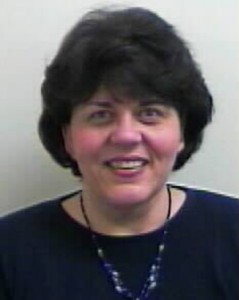Salt Lake City District Court Judge, Sheila McCleve was a graduate of the J. Reuben Clark Law School’s Charter Class and has been a pioneer for women in law. McCleve was the first full-time female prosecutor for Salt Lake City and just the fifth female judge in the state of Utah.

“There just hadn’t been women in the law,” McCleve said.
McCleve got her start as a prosecutor for Salt Lake City civil and criminal division. She then went on to be an assistant city prosecutor, an administrative law judge for the Public Service Commission, a senior clerk for Justice Richard Howe, and eventually became a fifth district court judge, where she worked as a circuit court judge for 12 years and a district court judge for more than 13 years.
Originally, McCleve did not think she would get the nomination for judge, but applied so that there would be more female applicants before the committee.
“I had enough experience at the time that it was not an unreasonable application to put in, but I don’t think (anyone) thought it would happen and I was quite surprised actually,” McCleve said. “I wanted it to happen, but being appointed to the bench is kind of like being struck by lightning (or having) all the stars line up just right.”
McCleve originally pursued law school to be a professor and only had a slight disposition toward what she believed to be an unrealistic dream of one day becoming a judge.
“I wasn’t planning to be a lawyer. In fact, I didn’t even like lawyers,” McCleve said. “I was going to be academic and maybe teach at a college. When they were starting the law school, I really felt like I should go. I didn’t really have any preconceived notions of career aspirations.”
McCleve recalls her feeling while sitting in the first class of the new, unaccredited law school.
“It felt like something big, something important and something overwhelming. It was bigger than I thought and I wondered, ‘What am I doing here?’ It was just amazing,” she said. “It was clear to me that the people that started it were committed to making it excellent. You’ve got the weightiness of it.”
Today, McCleve has nothing but fond memories and gratitude toward the law school.
“I think for me (there was) value for having gone to … and completed law school,” she said. “I’m glad to have a degree and I am grateful for the course that my life took. I really feel like I owe the law school a great deal. Not only for my career, which has really been a blessing to me, but also it really gave me a perspective for my whole life.”
McCleve echoed a statement by former law school president Marion G. Romney.
“President Marion Romney said that we would be talked about more than any other class,” she said. “And I think that’s true.”




